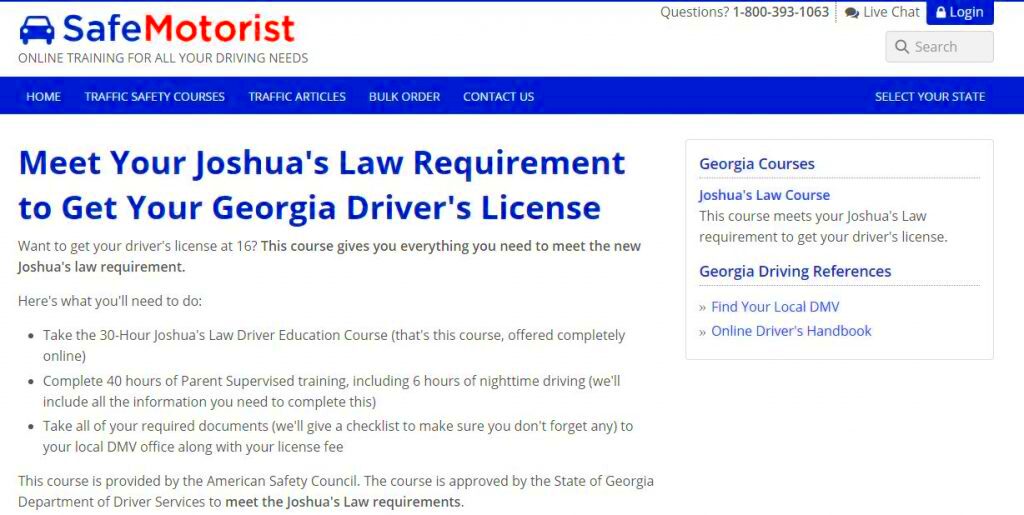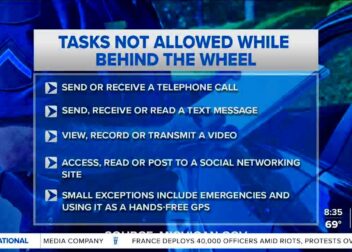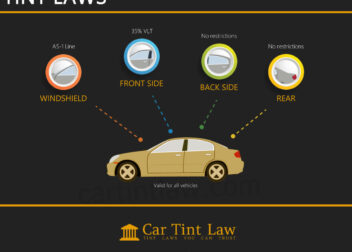A Guide to Florida’s Version of Joshua’s Law
Florida’s Version of Joshua’s Law is an important piece of legislation aimed at improving teen driver safety. This law requires specific driver education programs for new drivers, ensuring they have the necessary skills and knowledge before hitting the road. By mandating these educational courses, Florida hopes to reduce the number of accidents involving young drivers and promote safer driving habits.
Understanding Joshua’s Law and Its Purpose

Joshua’s Law originated in Georgia after a tragic accident claimed the life of a teenager named Joshua. The law emphasizes the need for proper driver education and training to help prevent similar tragedies. Florida adopted its version of this law to address the high rate of accidents involving teen drivers.
The primary goals of Joshua’s Law include:
- Reducing the number of car accidents among young drivers
- Promoting responsible driving behaviors
- Encouraging teens to complete comprehensive driver education courses
By setting these standards, the law aims to equip new drivers with essential skills, making them safer on the roads.
Key Requirements of Florida’s Version of Joshua’s Law

Florida’s Version of Joshua’s Law outlines several key requirements that young drivers must fulfill:
- Driver Education Course: Teens must complete a state-approved driver education course, which covers both classroom instruction and behind-the-wheel training.
- Minimum Hours of Training: The law specifies a minimum number of hours that must be spent on driving practice, typically at least 50 hours, including 10 hours at night.
- Parental Involvement: Parents or guardians are required to be involved in the learning process, ensuring that they supervise and support their teen during practice sessions.
- Certification: After completing the course and practice hours, students receive a certificate, which is necessary to obtain their driver’s license.
These requirements are designed to create a structured learning environment that helps teens develop their driving skills and confidence before they take on the responsibilities of being a licensed driver.
Impact of Joshua’s Law on Teen Drivers

Since the introduction of Joshua’s Law in Florida, the impact on teen drivers has been significant. The law not only sets standards for driver education but also promotes a culture of safety and responsibility among young drivers. By mandating proper training, the law aims to lower the number of accidents and fatalities involving teens.
Here are some key impacts of the law:
- Increased Awareness: Teens and parents are now more aware of the importance of comprehensive driver education.
- Improved Skills: With required training, teens are better equipped to handle various driving situations, making them safer on the road.
- Reduced Accidents: Statistics indicate a decline in accidents among teen drivers since the law’s implementation, showcasing its effectiveness.
- Positive Attitude Toward Driving: By emphasizing responsible driving habits, teens develop a better attitude towards road safety.
Overall, Joshua’s Law has fostered a safer environment for teen drivers, ultimately benefiting all road users.
Enforcement and Compliance with the Law

Enforcement of Florida’s Version of Joshua’s Law is crucial to its success. The law is monitored through various means to ensure that teen drivers are complying with the requirements.
Here’s how enforcement and compliance work:
- Driver Education Programs: State-approved programs must adhere to specific guidelines set forth by the law. These programs are regularly evaluated to ensure compliance.
- Certification Process: Teens must present their completion certificates when applying for a driver’s license, confirming they have met the training requirements.
- Parental Verification: Parents must confirm their involvement in their teen’s learning process, which adds another layer of accountability.
- Penalties for Non-Compliance: Failing to complete the required driver education can result in delays or denial of a driver’s license, encouraging compliance.
These enforcement mechanisms work together to ensure that teens are adequately prepared to drive safely and responsibly.
Benefits of Completing Driver Education
Completing a driver education program under Joshua’s Law offers numerous benefits for teen drivers. Beyond meeting legal requirements, these programs provide essential skills that can last a lifetime.
Some of the main benefits include:
- Enhanced Safety Skills: Teens learn defensive driving techniques, making them more aware of their surroundings and better prepared to react to potential hazards.
- Increased Confidence: With proper training, new drivers gain confidence in their abilities, leading to safer driving behavior.
- Lower Insurance Rates: Successfully completing a driver education program may qualify teens for discounts on car insurance, providing financial benefits for families.
- Understanding Traffic Laws: The program educates teens about traffic laws and regulations, which is vital for responsible driving.
Ultimately, completing driver education not only fulfills legal obligations but also helps ensure that young drivers are well-equipped to handle the challenges of the road.
Common Misconceptions About Joshua’s Law
Despite the positive intentions behind Joshua’s Law, several misconceptions can lead to confusion for teens and parents alike. It’s important to address these myths to better understand the law and its implications for young drivers.
Here are some common misconceptions:
- All Driver Education Courses Are the Same: Not all courses meet the requirements set by Joshua’s Law. It’s crucial to ensure the program is state-approved to count toward the mandated training.
- Only Classroom Instruction Is Required: Many believe that simply attending classes is enough. However, hands-on driving practice is a critical component of the law.
- Parents Don’t Need to Be Involved: Some think parental involvement is optional. In reality, parents play a vital role in the learning process, and their participation is required.
- Joshua’s Law Applies Only to First-Time Drivers: This law applies to all teen drivers seeking to obtain their initial license, not just those who are completely new to driving.
- Completion Guarantees a License: Completing a driver education course does not automatically guarantee a driver’s license. Teens must still pass the state driving test.
By clearing up these misconceptions, families can approach the driver education process with a better understanding and prepare adequately for safe driving.
FAQs About Florida’s Version of Joshua’s Law
Here are some frequently asked questions about Florida’s Version of Joshua’s Law, which can help clarify any doubts:
- What is the age requirement for Joshua’s Law? Teens must be at least 15 years old to begin the driver education program.
- How many hours of practice are required? Teens must complete a minimum of 50 hours of supervised driving practice, including 10 hours at night.
- Do I need to take the course if I already have a learner’s permit? Yes, the law applies to all first-time drivers, including those with a learner’s permit.
- Can online courses count toward the requirements? Online courses are acceptable, but they must be state-approved and meet all necessary criteria.
- What happens if my teen doesn’t complete the course? Failure to complete the required education will delay the issuance of a driver’s license.
These FAQs help to ensure that teens and parents have the necessary information to navigate the requirements of Joshua’s Law confidently.
Conclusion on the Importance of Joshua’s Law
Joshua’s Law plays a vital role in promoting safe driving among teens in Florida. By establishing clear requirements for driver education, the law aims to equip young drivers with the skills and knowledge they need to navigate the roads responsibly.
In conclusion, here’s why Joshua’s Law is important:
- Safety First: By emphasizing education and training, the law helps reduce accidents and fatalities among teen drivers.
- Empowerment: Completing driver education empowers teens to become confident and responsible drivers.
- Community Awareness: The law raises awareness about the significance of proper driver education, fostering a culture of safety in the community.
- Long-Term Benefits: Skills learned through driver education can lead to lifelong safe driving habits, benefiting everyone on the road.
Ultimately, Florida’s Version of Joshua’s Law is about more than just regulations; it’s about ensuring the safety and well-being of our future drivers.


